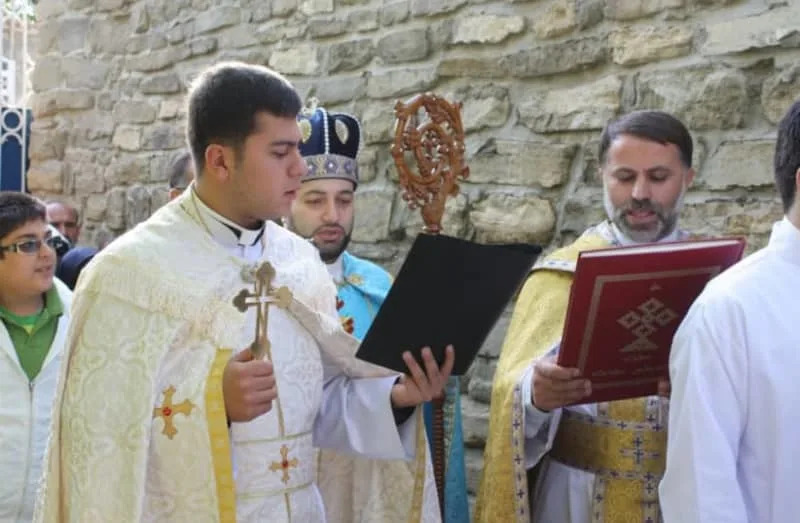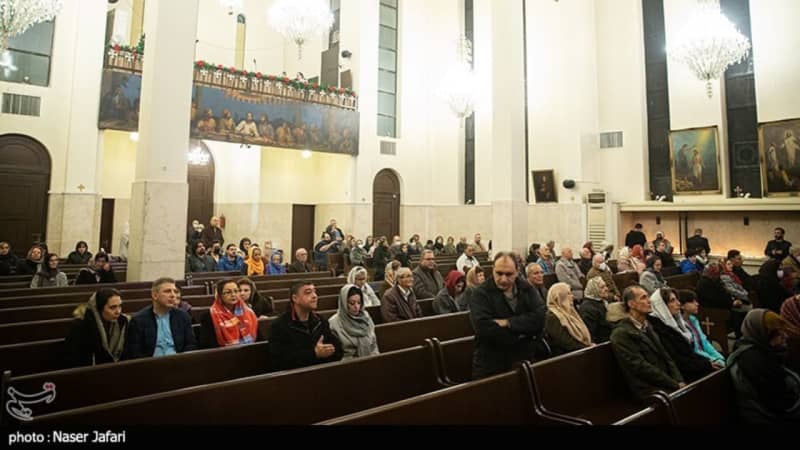The arrests occurred in Tehran, Rasht, Urmia, Kermanshah, and Varamin, with a further arrest in Kerman before the conflict, UK-based non-profit Article18 claimed.
Iran’s Intelligence Ministry has arrested at least 21 Christians in the two weeks following the ceasefire with Israel, UK-based non-profit Article18 said on Thursday.
The arrests were made in Tehran, Rasht, Urmia, Kermanshah, and Varamin, with a further arrest in Kerman before the conflict, the non-profit claimed.
Article18 received reports of other arrests, which it is “in the process of verifying.”
Article18 describes itself as “dedicated to the protection and promotion of religious freedom in Iran and advocating on behalf of its persecuted Christians,” according to their website.
“Our vision is to see the human rights and religious freedom of every citizen honoured in Iran. We believe that defending human rights is the responsibility of us all, and especially of Christians, who want to play a positive, transforming role in society,” the non-profit states.

Assyrian Christians in Urmia, 2022; illustrative. (credit: Wikimedia Commons/Mar Sharb)
“Hundreds of individuals, including … members of ethnic and religious minorities … have been detained on accusations of ‘collaboration’ or ‘espionage’,” UN Special Rapporteur on the situation of human rights in Iran, Mai Sato, and Special Rapporteur on freedom of religion or belief, Nazila Ghanea wrote in a statement.
“Post-conflict situations must not be used as an opportunity to suppress dissent and increase repression,” they added.
Precise details of the cases involving arrested Christians “cannot be divulged at this stage,” Article18 stated, adding that some of the cases relate to allegedly possessing Bibles, while others have been threatened with charges under a newly proposed law seeking to enforce harsh punishments for those alleged to have collaborated with “hostile states” including Israel and the US.
This follows a trend in Iran where prosecutors and judges frequently label evangelical Christians as “Zionists,” “deviant,” and belonging to “illegal sects” in order to differentiate between them and the more-tolerated Orthodox and Catholic Christians in the country, the non-profit reported.
In a case revealed in 2024’s leaked Tehran judiciary files showed that a judge sought to connect evangelical Christianity with the West and Israel by stating that “Evangelistic Christianity in Iran seeks to weaken the foundation of the family and … fight against the necessities of Islam, including the Islamic hijab, as well as cleansing the evils of America and especially the occupying regime of Israel,” the non-profit noted.
Sato and Ghanea expressed concern at this “dehumanizing rhetoric” being used against minorities, adding that they have received reports of “incitement to discrimination, hostility and violence in the media, which have labelled entire minority communities as traitors and used dehumanising language such as ‘filthy rats’,” the non-profit added.
They also condemned “abysmal” and “deteriorating” conditions faced by prisoners who were transferred after Israel’s strike on Tehran’s Evin Prison.
Several Christians were imprisoned in Evin Prison when Israel conducted airstrike
At least 11 Christians were imprisoned in Evin at the time of the strike, and all are believed to have been transferred elsewhere, but not all have been accounted for, the non-profit reported.
Aida Najaflou, a convert to Christianity, was among the prisoners transferred to Qarchak Prison after the strike.
She said in a recording to UK-based anti-regime outlet Iran International that she was transferred in “such a disgraceful manner” and prisoners are currently “suffering without clean water, cooling, or heating, lacking hygiene and proper food, entangled and helpless.”
Najaflou was charged with “gathering and collusion” and “propaganda against the Islamic Republic of Iran,” the non-profit reported. Her indictment also referred to the Bible as a prohibited text.
She also faces two additional charges, namely “propaganda activity against the Islamic Republic of Iran in the cyberspace” and “propaganda in favour of groups or organisations opposed to the Islamic Republic of Iran,” following her social media posts supporting the “Women, Life, Freedom” protests which followed the death of Mahsa Amini, and denouncing former Hezbollah terror chief, Hassan Nasrallah, the non-profit added.
